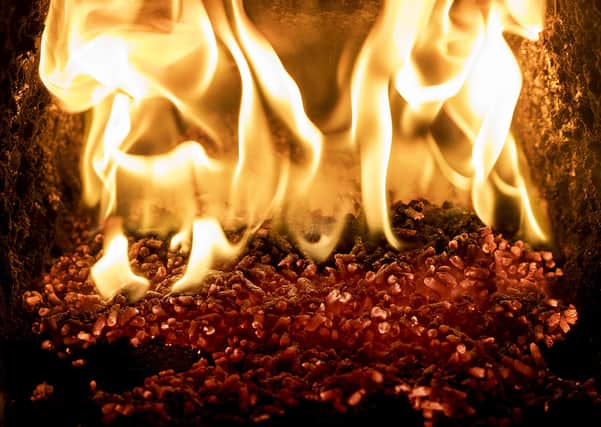Stormont ‘has caused RHI hardship’ on legitimate claimants says independent review, disproving claim by civil servants


Last year, while there was no Stormont Executive, civil servants in the Department for the Economy proposed radical cuts to RHI subsidies which had been guaranteed for 20 years, cutting the earning potential of a typical boiler by 96%.
The then secretary of state Karen Bradley brought those changes to Westminster where they were rubber-stamped.
Advertisement
Hide AdAdvertisement
Hide AdAt the time, the Department for the Economy (DfE) confidently said that those with RHI boilers would not revert to fossil fuels because wood pellets are the cheapest form of fuel on the market and therefore it would not make sense for anyone with a biomass boiler to switch to a more expensive fuel.
However, as part of Westminster passing the changes, the House of Lords asked civil servants to have their work independently examined to ensure that it was not leading to hardship for those who had entered the scheme in good faith.
Yesterday that report, by energy consultant Andrew Buglass, was published – some five months after it was meant to have been completed.
His report finds that contrary to civil servants’ claims, a significant percentage of RHI claimants to whom he spoke have either reverted to gas or are considering doing so.
Advertisement
Hide AdAdvertisement
Hide AdHe also found multiple examples of how Stormont’s behaviour towards legitimate RHI claimants has left them in hardship – not just financially, where some claimants had liquidated their pensions or sold land in order to keep up loan repayments for the boilers Stormont urged them to install – but also a significant impact on mental health.
He said that claimants had told him of “knock-on effects in relationships and families, with recriminations among family members or heated disagreements on what action should be taken as a result”, ill-health attributed to the scheme, or in one case a man who said that “his children had faced bullying in school as a result” of it being known that he was a claimant.
He said that some RHI claimants felt that “those who had been guilty of inflating claims for heat should have been pursued more vigorously, and that slowness and some opacity in the audit process had not helped illustrate that abusers of the scheme were in fact a very small proportion of the participants”.
Mr Buglass suggested that Stormont could now – as some claimants want – simply replicate the GB tariff levels.
Advertisement
Hide AdAdvertisement
Hide AdThat is unlikely, but earlier this week DfE, which is now under DUP minister Diane Dodds, said that it was considering increasing the tariffs for the most popular 99kw boilers by 38%. However, that would still leave them far behind the situation in GB and Ireland.